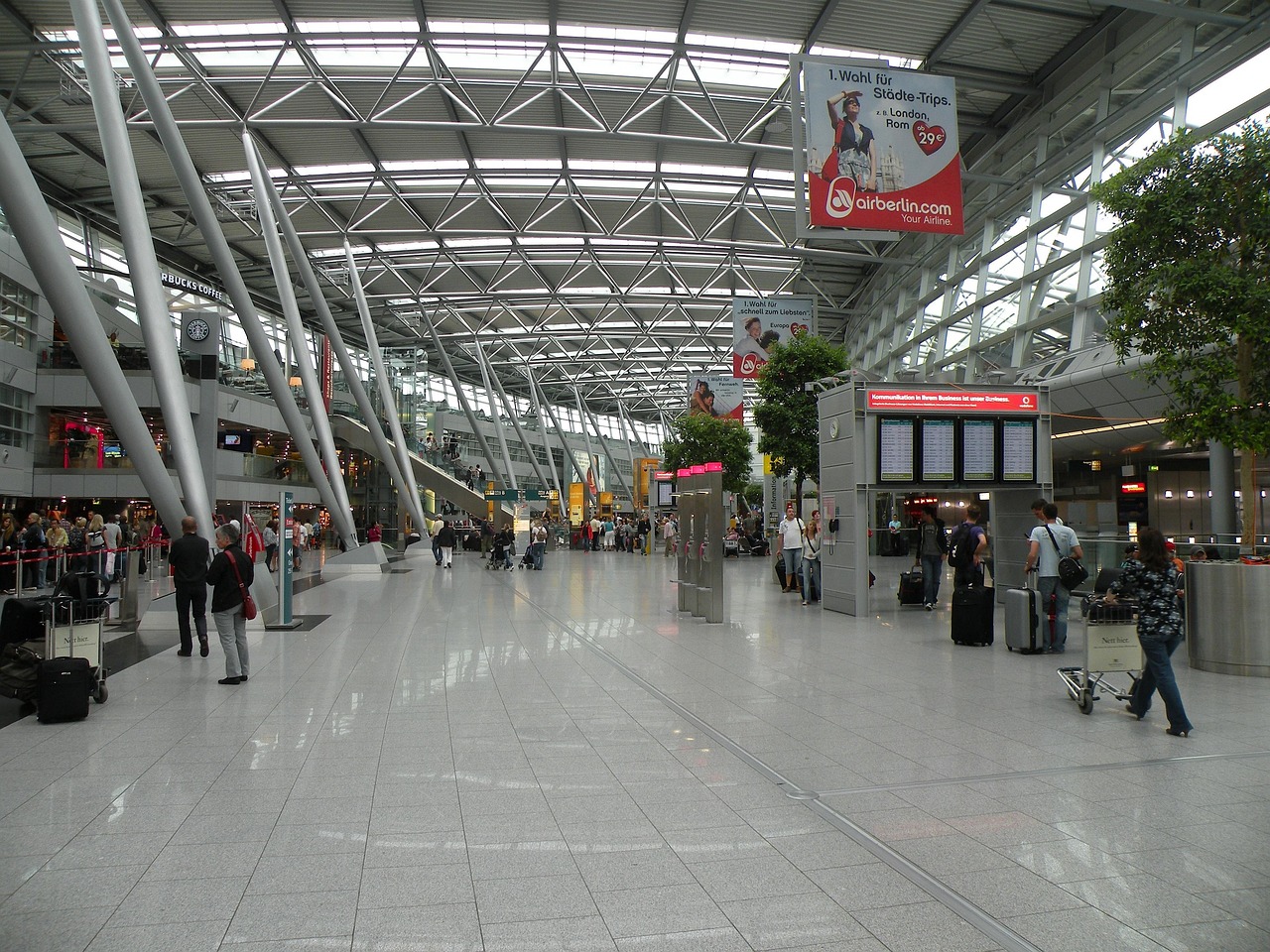Mastering the Global Interview: Navigating Cultural Nuances for UK Talent
The Importance of Cultural Awareness in Global Interviews
Understanding Cultural Awareness
Cultural awareness is the recognition and understanding of the differences and similarities between cultures. It involves acknowledging the diverse ways in which people communicate, behave, and perceive the world around them. In the context of global interviews, cultural awareness is crucial as it helps interviewers and candidates navigate the complexities of cross-cultural interactions.
The Role of Cultural Awareness in Global Interviews
In a globalized job market, interviews often involve participants from different cultural backgrounds. Cultural awareness plays a pivotal role in ensuring effective communication and mutual understanding during these interactions. It helps interviewers and candidates avoid misunderstandings that may arise from cultural differences in communication styles, body language, and social norms.
Enhancing Communication
Cultural awareness enhances communication by enabling individuals to adapt their communication styles to suit the cultural context of the interview. This includes understanding the nuances of verbal and non-verbal communication, such as tone of voice, eye contact, and gestures, which can vary significantly across cultures. By being culturally aware, interviewers and candidates can ensure that their messages are conveyed accurately and respectfully.
Building Rapport and Trust
Building rapport and trust is essential in any interview setting, and cultural awareness is key to achieving this in a global context. Understanding cultural norms and values allows interviewers and candidates to establish a connection based on mutual respect and understanding. This can lead to more open and honest communication, fostering a positive interview experience for both parties.
Avoiding Cultural Missteps
Cultural missteps can occur when individuals are unaware of or disregard cultural differences. These missteps can lead to misunderstandings, offense, or even the loss of potential job opportunities. Cultural awareness helps individuals anticipate and avoid these pitfalls by providing insights into appropriate behaviors and expectations in different cultural settings.
Demonstrating Cultural Competence
Cultural competence is the ability to interact effectively with people from different cultures. In global interviews, demonstrating cultural competence can set candidates apart by showcasing their ability to work in diverse environments. For interviewers, cultural competence ensures that they can assess candidates fairly and without bias, leading to more equitable hiring practices.
Conclusion
Cultural awareness is an essential component of successful global interviews. It facilitates effective communication, builds rapport and trust, and helps avoid cultural missteps. By prioritizing cultural awareness, both interviewers and candidates can navigate the complexities of cross-cultural interactions, leading to more successful and meaningful interview experiences.
Understanding Cultural Nuances: A Key to Success
The Importance of Cultural Awareness
Understanding cultural nuances is crucial for UK talent aiming to succeed in global interviews. Cultural awareness helps candidates navigate the complexities of international communication, ensuring they can effectively convey their skills and fit within diverse work environments. It involves recognizing and respecting differences in communication styles, values, and business practices across cultures.
Communication Styles
Direct vs. Indirect Communication
Different cultures have varying preferences for direct or indirect communication. In some cultures, such as the United States or Germany, direct communication is valued, with a focus on clarity and straightforwardness. In contrast, cultures like Japan or India may prefer indirect communication, where messages are conveyed subtly and contextually. UK candidates must adapt their communication style to align with the cultural expectations of their interviewers.
Non-Verbal Communication
Non-verbal cues, such as body language, eye contact, and gestures, can vary significantly across cultures. For instance, maintaining eye contact is seen as a sign of confidence in Western cultures, while it may be considered disrespectful in some Asian cultures. Understanding these differences can help UK talent avoid misinterpretations and build rapport with interviewers.
Cultural Values and Norms
Individualism vs. Collectivism
Cultural values such as individualism and collectivism influence workplace dynamics and expectations. In individualistic cultures, like the UK or the US, personal achievements and autonomy are emphasized. Conversely, collectivist cultures, such as those in China or Mexico, prioritize group harmony and collaboration. UK candidates should be aware of these values to tailor their responses and demonstrate cultural sensitivity.
Power Distance
Power distance refers to the extent to which less powerful members of a society accept and expect power to be distributed unequally. In high power distance cultures, such as Russia or India, hierarchical structures are respected, and authority is rarely challenged. In low power distance cultures, like Denmark or the Netherlands, equality and open dialogue are encouraged. Understanding power distance can help UK talent navigate hierarchical dynamics during interviews.
Business Etiquette and Practices
Meeting Protocols
Meeting protocols, including punctuality, formality, and the structure of discussions, can differ widely. In Germany, punctuality is crucial, while in some Latin American countries, meetings may start later than scheduled. Formality levels can also vary, with some cultures preferring titles and formal greetings, while others adopt a more casual approach. UK candidates should research and adapt to these protocols to make a positive impression.
Decision-Making Processes
Decision-making processes can be influenced by cultural factors, such as the level of consensus required or the speed at which decisions are made. In cultures like Japan, consensus-building is essential, and decisions may take longer. In contrast, in the US, decisions are often made quickly and decisively. Understanding these processes can help UK talent align their expectations and responses during interviews.
The UK Perspective: Common Traits and Expectations
Professionalism and Punctuality
In the UK, professionalism is highly valued in the workplace. This encompasses a range of behaviors, including maintaining a respectful demeanor, dressing appropriately for the role, and demonstrating a strong work ethic. Punctuality is particularly emphasized, as arriving on time is seen as a sign of respect and reliability. Being late can be perceived as unprofessional and may negatively impact one’s reputation.
Communication Style
UK professionals often favor a direct yet polite communication style. Clarity and conciseness are appreciated, and it is important to balance assertiveness with diplomacy. While being straightforward is valued, it is equally important to be tactful and considerate of others’ perspectives. Listening skills are also crucial, as they demonstrate respect and engagement in conversations.
Emphasis on Qualifications and Experience
In the UK, there is a strong emphasis on formal qualifications and relevant experience. Candidates are often expected to have a solid educational background and a proven track record in their field. During interviews, it is common for employers to inquire about specific achievements and how past experiences align with the role in question. Demonstrating a commitment to continuous professional development is also seen as a positive trait.
Cultural Awareness and Sensitivity
Given the UK’s diverse workforce, cultural awareness and sensitivity are important traits for professionals. Employers value individuals who can work effectively in multicultural environments and who demonstrate an understanding of different cultural norms and practices. This includes being open-minded, adaptable, and respectful of diversity in all its forms.
Teamwork and Collaboration
Collaboration is a key expectation in UK workplaces. Professionals are often required to work in teams and contribute to collective goals. The ability to collaborate effectively, share ideas, and support colleagues is highly regarded. Employers look for candidates who can demonstrate strong interpersonal skills and a willingness to work cooperatively with others.
Problem-Solving and Initiative
UK employers appreciate candidates who can demonstrate strong problem-solving skills and the ability to take initiative. Being proactive in identifying challenges and proposing solutions is seen as a valuable trait. Employers often seek individuals who can think critically, adapt to changing circumstances, and contribute innovative ideas to drive the organization forward.
Adaptability and Resilience
In a rapidly changing global environment, adaptability and resilience are crucial traits for UK professionals. Employers value individuals who can navigate uncertainty, embrace change, and remain focused under pressure. Demonstrating the ability to learn from setbacks and maintain a positive attitude in challenging situations is highly regarded.
Ethical Standards and Integrity
Ethical behavior and integrity are fundamental expectations in the UK workplace. Professionals are expected to adhere to high ethical standards, demonstrate honesty, and act with integrity in all business dealings. Employers seek candidates who can be trusted to make ethical decisions and who prioritize transparency and accountability in their work.
Researching Your Target Culture: Tools and Strategies
Understanding Cultural Dimensions
Hofstede’s Cultural Dimensions Theory
Hofstede’s Cultural Dimensions Theory is a valuable tool for understanding the cultural differences that can impact interviews. This framework identifies six dimensions of culture: Power Distance, Individualism vs. Collectivism, Masculinity vs. Femininity, Uncertainty Avoidance, Long-Term Orientation vs. Short-Term Normative Orientation, and Indulgence vs. Restraint. By analyzing these dimensions, UK talent can gain insights into the values and behaviors prevalent in the target culture, helping them tailor their communication and responses during interviews.
The Lewis Model
The Lewis Model categorizes cultures into three types: Linear-active, Multi-active, and Reactive. This model helps in understanding how different cultures approach communication, time management, and decision-making. By identifying where the target culture falls within this model, candidates can adjust their interview strategies to align with cultural expectations.
Leveraging Online Resources
Country-Specific Guides
Websites like the CIA World Factbook, BBC Country Profiles, and Culture Crossing provide comprehensive overviews of different countries, including cultural norms, business etiquette, and communication styles. These resources are essential for UK talent to familiarize themselves with the cultural context of their target country.
Expat Forums and Social Media Groups
Online forums and social media groups, such as those on Reddit or Facebook, offer firsthand accounts and advice from expatriates living in the target culture. Engaging with these communities can provide practical insights and tips on navigating cultural nuances during interviews.
Engaging with Cultural Experts
Cultural Consultants
Hiring a cultural consultant can provide personalized guidance and training on the target culture. These experts offer workshops and one-on-one coaching sessions to help candidates understand cultural subtleties and develop effective communication strategies for interviews.
Networking with Locals
Building a network with individuals from the target culture can offer invaluable insights. Attending cultural events, joining international professional groups, or participating in language exchange programs can facilitate connections with locals who can share their experiences and advice on cultural expectations in professional settings.
Utilizing Language and Communication Tools
Language Learning Apps
Apps like Duolingo, Babbel, and Rosetta Stone can help candidates learn the basics of the target culture’s language. Even a basic understanding of the language can demonstrate respect and interest in the culture, which can be advantageous during interviews.
Cross-Cultural Communication Training
Participating in cross-cultural communication training programs can enhance a candidate’s ability to navigate cultural differences effectively. These programs focus on developing skills such as active listening, non-verbal communication, and adaptability, which are crucial for successful interviews in a global context.
Communication Styles: Adapting to Different Cultural Contexts
Understanding High-Context vs. Low-Context Cultures
In the realm of global communication, understanding the distinction between high-context and low-context cultures is crucial. High-context cultures, such as those in Japan, China, and many Arab countries, rely heavily on implicit communication and non-verbal cues. In these cultures, much of the communication is understood through context, shared experiences, and unspoken rules. Conversely, low-context cultures, like those in the United States, Germany, and the UK, prioritize explicit verbal communication where messages are direct and clear.
For UK talent, adapting to high-context cultures may require a heightened awareness of body language, tone, and the subtleties of conversation. It is important to pay attention to what is not being said and to understand the cultural norms that influence communication. In low-context interactions, being clear, concise, and direct is often appreciated and expected.
The Role of Language and Translation
Language plays a pivotal role in cross-cultural communication. While English is widely spoken in business settings, nuances in language can lead to misunderstandings. For UK professionals, it is essential to be mindful of idiomatic expressions, slang, and jargon that may not translate well across cultures. When working with non-native English speakers, using simple and clear language can help bridge communication gaps.
Translation and interpretation services can be invaluable in ensuring accurate communication. However, it is important to recognize that translation is not just about converting words but also about conveying meaning and intent. Understanding cultural connotations and context is key to effective translation.
Non-Verbal Communication and Its Impact
Non-verbal communication, including gestures, facial expressions, and body language, varies significantly across cultures. In some cultures, maintaining eye contact is a sign of confidence and honesty, while in others, it may be perceived as disrespectful or confrontational. Similarly, gestures that are commonplace in one culture may be offensive in another.
UK professionals should be aware of these differences and adapt their non-verbal communication accordingly. Observing and mirroring the non-verbal cues of counterparts from different cultures can help build rapport and avoid misunderstandings. Being sensitive to personal space, touch, and physical proximity is also important, as these can vary widely between cultures.
The Importance of Active Listening
Active listening is a critical skill in cross-cultural communication. It involves not only hearing the words being spoken but also understanding the underlying message and emotions. In multicultural settings, active listening can help UK professionals navigate language barriers and cultural differences.
Practicing active listening requires patience, empathy, and an open mind. It involves asking clarifying questions, paraphrasing to confirm understanding, and being attentive to non-verbal signals. By demonstrating genuine interest and respect for different perspectives, UK talent can foster effective communication and build strong international relationships.
Adapting to Formality and Hierarchical Structures
Cultural attitudes towards formality and hierarchy can influence communication styles. In some cultures, formal titles and respectful language are essential, while in others, a more casual approach is acceptable. Understanding these cultural norms is crucial for UK professionals to avoid offending counterparts or appearing disrespectful.
In hierarchical cultures, communication may flow through established channels, and decision-making processes may be more centralized. UK talent should be prepared to adapt their communication style to align with these structures, showing deference to authority figures and understanding the appropriate level of formality in different contexts.
Building Rapport: Techniques for Cross-Cultural Connection
Understanding Cultural Contexts
Understanding cultural contexts is crucial for building rapport in cross-cultural interviews. Each culture has its own set of norms, values, and communication styles that influence how individuals interact. For UK talent, it is essential to research and understand the cultural background of the interviewers or the organization. This includes being aware of cultural dimensions such as individualism versus collectivism, power distance, and uncertainty avoidance. By understanding these cultural contexts, candidates can tailor their communication style to better align with the expectations of their international counterparts.
Active Listening and Empathy
Active listening is a fundamental technique for building rapport across cultures. It involves fully concentrating, understanding, and responding thoughtfully to what the other person is saying. In a cross-cultural setting, active listening helps in overcoming language barriers and ensures that the candidate accurately interprets the interviewer’s questions and comments. Empathy, on the other hand, involves putting oneself in the interviewer’s shoes and understanding their perspective. Demonstrating empathy can bridge cultural gaps and foster a sense of connection and mutual respect.
Non-Verbal Communication
Non-verbal communication plays a significant role in cross-cultural interactions. Gestures, facial expressions, and body language can vary significantly across cultures and can either enhance or hinder rapport-building efforts. For instance, maintaining eye contact is considered a sign of confidence in some cultures, while in others, it may be perceived as disrespectful. UK talent should be mindful of these differences and adapt their non-verbal cues accordingly. Being observant and mirroring the interviewer’s non-verbal signals can also help in establishing a comfortable and harmonious interaction.
Adaptability and Flexibility
Adaptability and flexibility are key traits for successfully navigating cross-cultural interviews. Cultural differences may lead to unexpected situations or misunderstandings. Being adaptable means being open to adjusting one’s communication style and approach based on the cultural context. Flexibility involves being willing to accommodate different perspectives and finding common ground. By demonstrating adaptability and flexibility, candidates can show their willingness to embrace diversity and work effectively in a global environment.
Building Trust Through Authenticity
Building trust is a cornerstone of rapport, and authenticity is a powerful tool in achieving this. Being genuine and transparent in communication helps in establishing credibility and trustworthiness. In a cross-cultural setting, authenticity involves being true to oneself while respecting cultural differences. UK talent should strive to be honest about their skills and experiences, while also showing a genuine interest in the culture and values of the organization they are engaging with. This balance of authenticity and cultural sensitivity can create a strong foundation for rapport and successful cross-cultural interactions.
Handling Cultural Misunderstandings: Strategies for Recovery
Acknowledge the Misunderstanding
Recognizing and acknowledging a cultural misunderstanding is the first step towards recovery. It is crucial to address the issue promptly and sincerely. This involves admitting any mistakes or misinterpretations and expressing a genuine willingness to understand the other party’s perspective. Acknowledgment demonstrates respect and a commitment to resolving the issue, which can help to rebuild trust and rapport.
Apologize Sincerely
A sincere apology can go a long way in mending relationships after a cultural misunderstanding. It is important to express regret for any offense caused and to do so in a manner that is culturally appropriate. This may involve understanding the nuances of how apologies are typically given and received in the other culture. A heartfelt apology can help to diffuse tension and open the door to constructive dialogue.
Seek Clarification
To prevent further misunderstandings, it is essential to seek clarification on the cultural norms or practices that were misinterpreted. This involves asking open-ended questions and actively listening to the responses. By showing a genuine interest in learning and understanding the other culture, you demonstrate respect and a willingness to adapt. This approach can also provide valuable insights that can be applied in future interactions.
Engage in Open Dialogue
Engaging in open and honest dialogue is key to resolving cultural misunderstandings. This involves creating a safe space where all parties feel comfortable expressing their thoughts and feelings. Encouraging open communication can help to uncover the root causes of the misunderstanding and facilitate a mutual understanding. It is important to approach these conversations with empathy and an open mind.
Learn and Adapt
Learning from the experience is crucial for personal and professional growth. Reflect on the misunderstanding and identify any cultural knowledge gaps that need to be addressed. This may involve seeking out resources or training to enhance cultural competence. By demonstrating a commitment to learning and adapting, you can prevent similar misunderstandings in the future and improve your ability to navigate cross-cultural interactions.
Build Cultural Awareness
Building cultural awareness is an ongoing process that involves continuous learning and exposure to different cultures. This can be achieved through various means, such as attending cultural events, participating in workshops, or engaging with diverse communities. By broadening your cultural awareness, you can develop a deeper understanding of different perspectives and improve your ability to communicate effectively across cultures.
Foster a Culture of Inclusivity
Creating an inclusive environment where cultural diversity is valued and respected can help to prevent misunderstandings from occurring in the first place. This involves promoting cultural awareness and sensitivity within your organization or team. Encourage open discussions about cultural differences and provide opportunities for team members to share their experiences and insights. By fostering a culture of inclusivity, you can create a more harmonious and productive work environment.
Embracing Cultural Diversity for Interview Success
Understanding the Importance of Cultural Awareness
Cultural awareness is a critical component in mastering global interviews. Recognizing and respecting cultural differences can significantly enhance communication and foster a positive impression. For UK talent, understanding the cultural context of the interview can help in tailoring responses and behavior to align with the expectations of international employers. This awareness not only demonstrates respect but also showcases adaptability and global competence, qualities highly valued in today’s interconnected world.
Building Cultural Competence
Cultural competence involves acquiring knowledge about different cultural practices and perspectives. For UK professionals, this means engaging in continuous learning about the cultural norms and values of the countries they are targeting for job opportunities. This can be achieved through research, cultural training programs, and engaging with diverse communities. By building cultural competence, candidates can better anticipate potential cultural misunderstandings and navigate them effectively during interviews.
Adapting Communication Styles
Communication styles vary significantly across cultures, and adapting to these differences is crucial for interview success. UK candidates should be mindful of both verbal and non-verbal communication cues. For instance, while direct communication is often appreciated in the UK, some cultures may prefer a more indirect approach. Understanding these nuances can help candidates adjust their communication style to better connect with interviewers from different cultural backgrounds.
Demonstrating Cultural Sensitivity
Cultural sensitivity involves being aware of and respectful towards cultural differences. During interviews, UK talent should demonstrate cultural sensitivity by avoiding stereotypes and assumptions. This can be achieved by actively listening, asking thoughtful questions, and showing genuine interest in the cultural background of the interviewer. Demonstrating cultural sensitivity not only enhances the interview experience but also reflects a candidate’s ability to work effectively in diverse environments.
Leveraging Cultural Diversity as a Strength
Cultural diversity should be viewed as a strength rather than a challenge. UK candidates can leverage their own cultural experiences and perspectives to stand out in global interviews. By highlighting their ability to work in multicultural teams and adapt to diverse environments, candidates can position themselves as valuable assets to international employers. Embracing cultural diversity allows candidates to showcase their unique skills and perspectives, making them more attractive to global organizations seeking to enhance their cultural competence.



